Share
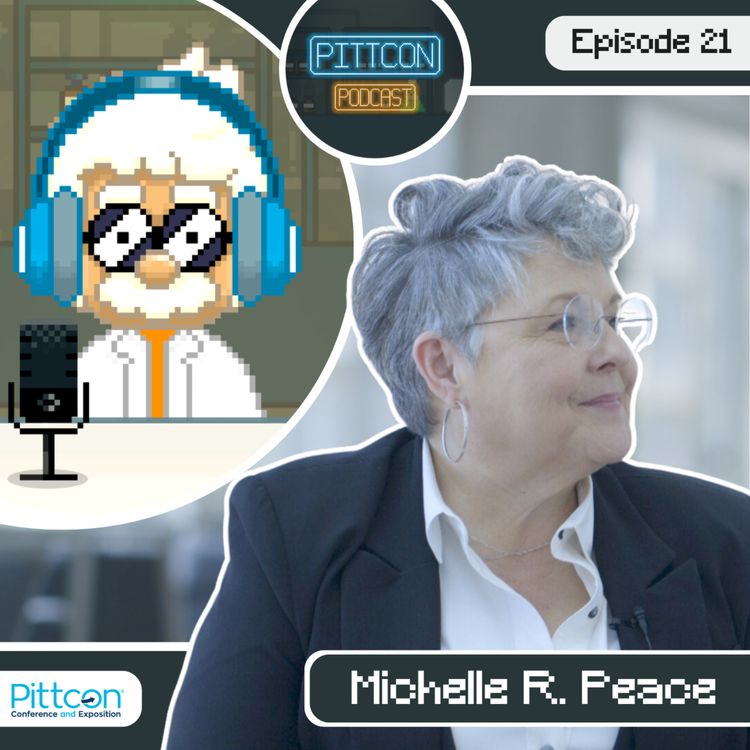
The Pittcon Podcast
E-Cigarettes and Ethanol: The Forensic Toxicology of Vaping with Michelle Peace
In this enlightening episode, we delve into the intricate world of vaping with Dr. Michelle R. Peace, a leading expert in forensic science and toxicology. Join us as we explore the multifaceted relationship between e-cigarettes and ethanol, uncovering the implications for public health and safety.
Dr. Peace shares her extensive research on the chemical composition of e-cigarette aerosols, highlighting the presence of ethanol and its potential effects on users. We discuss the forensic methodologies employed to analyze vaping products, providing listeners with a deeper understanding of how these substances interact within the body and the environment.
Throughout the conversation, Dr. Peace emphasizes the importance of rigorous scientific investigation in the face of rapidly evolving vaping technologies. She addresses the challenges faced by regulatory bodies and the need for comprehensive policies to protect consumers, particularly vulnerable populations such as youth.
Tune in to gain valuable insights into the forensic perspective on vaping, the implications of ethanol in e-cigarettes, and the ongoing efforts to ensure public health safety in an era of increasing e-cigarette use.
Don't miss this opportunity to hear from one of the foremost authorities in the field and learn about the critical intersection of forensic science and vaping research.
Listen now to uncover the truth behind e-cigarettes and their impact on our health!
Register for Pittcon 2025 in Boston!
https://www.pittcon.org/register
Chapters
00:00 Introduction to Vaping and Forensic Toxicology
02:46 The Rise of E-Cigarettes and Their Implications
06:10 Public Health Concerns and Regulatory Challenges
09:03 Vaping Ethanol: Research Findings and Implications
11:59 Impact of Vaping on Roadside Impairment Evaluations
14:51 Chemical Composition of E-Liquids and Health Risks
18:07 The Need for Better Product Labeling and Regulation
21:00 Technological Advances in Forensic Analysis
23:49 Future Directions in Vaping Research
27:11 Concluding Thoughts and Community Engagement
#vaping #ecigarette #forensicscience #forensictoxicology #publichealth #ethanol #drugtesting #chemicalanalysis #substanceuse #healthrisk
More episodes
View all episodes
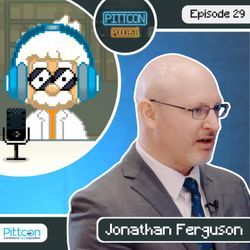
29. Ensuring Safety in Synthetic Psychedelics with Jonathan Ferguson
23:31||Ep. 29Jonathan Ferguson, Science Business Leader in New Strategy for Shimadzu Scientific Instruments, discusses the challenges and advancements in the field of synthetic psychedelics, focusing on quality control and the detection of unexpected compounds in consumer products. He highlights the importance of collaboration and innovation in ensuring product safety and advancing scientific understanding.You can read the written interview at:https://www.news-medical.net/news/20250826/Synthetic-Psychedelics-A-Growing-Public-Health-Concern.aspxFind out more about Pittcon 2026!https://www.pittcon.orgChapters0:00 Introduction to Synthetic Psychedelics3:37 Challenges in Quality Control11:51 Collaboration and Innovation15:25 Consumer Safety and Public Health20:30 Early Background in Research#syndelics #psychedelics #syntheticpsychedelics #analyticalchemistry #science #consumersafety #pittcon #shimadzu #compounds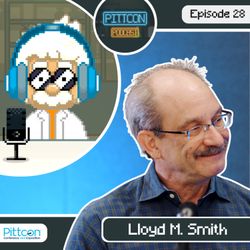
28. Exploring the Complexity of Proteoforms with Lloyd M. Smith
26:20||Ep. 28In this episode, Lloyd M. Smith discusses his journey in the field of proteomics and the development of innovative techniques for analyzing proteoforms. He highlights the significance of top-down proteomics and the potential of proteoform families in understanding complex biological systems.You can read the written interview at:https://www.news-medical.net/news/20250710/The-Proteoform-Puzzle-Unlocking-the-Next-Frontier.aspxFind out more about Pittcon 2026!https://www.pittcon.orgChapters0:00 Introduction to Proteomics7:50 Top-Down Proteomics and Proteoforms9:26 Proteoform Families and Biological Systems12:45 Innovative Techniques in Proteomics21:28 Clinical Applications and Disease Diagnostics22:56 Future Directions in Proteomics#proteomics #proteoforms #analyticalchemistry #science #topdownproteomics #biologicalsystems #pittcon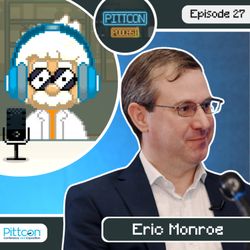
27. Preserving History through Analytical Science with Eric Monroe from the Library of Congress
47:55||Ep. 27In This Episode, Eric Monroe from the Library of Congress discusses the integration of analytical chemistry in cultural heritage preservation. He highlights the use of advanced technologies like multispectral imaging and GC-MS to analyze and conserve historical documents and artifacts, emphasizing the importance of non-destructive methods.You can read the written interview at:https://www.azom.com/article.aspx?ArticleID=24378Find out more about Pittcon 2026!https://www.pittcon.orgChapters0:00 Introduction to Cultural Heritage Preservation13:38 Non-Destructive Techniques and Technologies21:33 Multispectral Imaging and Its Applications30:18 GC-MS in Artifact Analysis38:23 Pittcon, Collaboration and Interdisciplinary Efforts44:30 Future Directions in Preservation#libraryofcongress #culturalheritage #science #analyticalchemistry #ericmonroe#pittcon #massspectrometry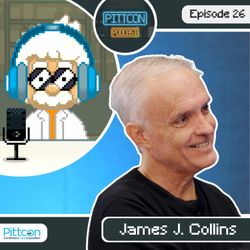
26. From Genetic Toggle Switches to Living Diagnostics and Therapeutics with James J. Collins
26:43||Ep. 26In this episode, James J. Collins, a pioneer in synthetic biology, discusses the evolution of the field from its inception to its current state. He highlights key innovations such as genetic toggle switches, paper-based diagnostics, and living therapeutics, emphasizing their potential to revolutionize healthcare and address global challenges.You can read the written interview at:https://www.news-medical.net/news/20250707/Synthetic-Biology-and-the-Pursuit-of-Living-Diagnostics.aspxFind out more about Pittcon 2026!https://www.pittcon.orgChapters0:00 Introduction to Synthetic Biology9:20 Genetic Toggle Switches and Early Innovations12:45 Paper-Based Diagnostics and Global Health20:15 Living Therapeutics and Future Directions24:05 AI and Machine Learning in Synthetic Biology25:25 Global Impact and Future Prospects#syntheticbiology #genetics #diagnostics #livingtherapeutics #genetictoggleswitches #genomics #science #pittcon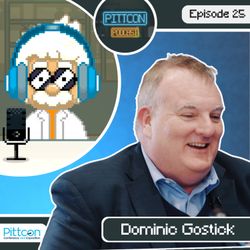
25. Innovating Scientific Instruments: A conversation with Dominic Gostick, CTO of PerkinElmer
20:18||Ep. 25Dominic Gostick, CTO of PerkinElmer, discusses the company's recent transformations and innovations in scientific instrumentation. He highlights the launch of new products like the QSight® 500 and the Spotlight™ Aurora FTIR Microscope, emphasizing their applications in environmental and food safety testing.You can read the written interview at:https://www.azom.com/article.aspx?ArticleID=24384Find out more about Pittcon 2026!https://www.pittcon.orgChapters0:00 Introduction to Perkin Elmer's Transformation4:25 New Product Launches: QSight® 5008:40 Spotlight™ Aurora Microscope and Applications13:45 Focus on Usability and AI17:25 Sustainability and Performance18:36 Pittcon, Networking and Industry Trends#perkinelmer #massspectrometry #science #microscopy #lcms #laboratory #chemistry #analyticalscience #pittcon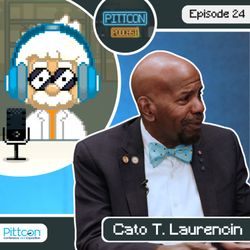
24. The Future of Tissue Regeneration with Sir Professor Cato T. Laurencin
26:24||Ep. 24Kickstarting the new series of the Pittcon Podcast, Sir Professor Cato T. Laurencin discusses his pioneering work in regenerative engineering, a field he founded that combines principles from various disciplines to create new ways to regenerate tissues and organs. He shares insights into his career journey, the development of the Laurencin-Cooper ligament, and the ambitious HEAL Project aimed at regenerating a human limb by 2030.You can read the written interview at:https://www.news-medical.net/news/202...Find out more about Pittcon 2026!https://www.pittcon.org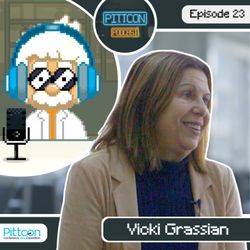
23. The Chemistry of Environmental Interfaces with Vicki Grassian
22:12||Ep. 23In this insightful episode, we welcome Dr. Vicki Grassian, a distinguished professor and expert in environmental chemistry, to discuss the critical role of environmental interfaces in shaping our world. From their effects on health and climate to their impact on ecosystems, Dr. Grassian sheds light on the unseen but powerful interactions happening at the microscopic level.Understanding Environmental Interfaces:Dr. Grassian explains how surfaces and interfaces in the environment—such as atmospheric aerosols, soil particles, and water contaminants—play a crucial role in chemical reactions that affect air quality, climate change, and human health.A Journey in Environmental Chemistry:She shares her path into environmental science, the challenges she has faced in her research, and how curiosity and persistence have driven her to push the boundaries of scientific understanding.The Power of Spectroscopy:We dive into the significance of spectroscopy as a tool for analyzing complex environmental systems, providing key insights into chemical processes that influence the world around us.Recognition & Scientific Contributions:Dr. Grassian reflects on being honored with the prestigious Pittsburgh Spectroscopy Award and how such recognition fuels further innovation and collaboration in the field.The Role of Conferences in Advancing Science:A discussion on how major scientific gatherings, like Pittcon, contribute to the exchange of ideas, foster collaborations, and inspire the next generation of environmental chemists.Join us for this engaging conversation as Dr. Grassian unpacks the hidden chemistry shaping our environment and the scientific tools that help us understand it.Register for Pittcon 2025 in Boston!https://www.pittcon.org/registerChapters00:00 Understanding Environmental Interfaces02:54 Challenges in Environmental Chemistry Research05:56 Significant Findings in Atmospheric Aerosols08:56 Advancements in Spectroscopic Techniques11:56 The Role of Spectroscopy in Environmental Chemistry15:04 Recognition and Impact of the Pittsburgh Spectroscopy Award18:01 The Importance of Conferences in Scientific Advancement#chemistry #environmental #environmentalscience #aerosols #healthimpacts #spectroscopy #pittcon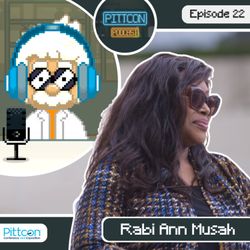
22. Decoding Cannabis: Differentiating Hemp and Marijuana with Rabi Ann Musah
23:15||Ep. 22In this enlightening episode, we are joined by Dr. Rabi Ann Musah, a Professor of Chemistry at the University at Albany, State University of New York. Dr. Musah shares her groundbreaking research on distinguishing between hemp and marijuana, two varieties of Cannabis sativa that are chemically similar yet legally distinct.Dr. Musah explains the primary difference between hemp and marijuana lies in their tetrahydrocannabinol (THC) content. While both belong to the Cannabis sativa species, hemp contains 0.3% or less THC, making it non-psychoactive and legal under federal law, whereas marijuana has higher THC levels and remains a controlled substance. The conversation delves into the difficulties faced by law enforcement and forensic laboratories in distinguishing between hemp and marijuana, given their similar appearances and chemical compositions. Current methods require quantifying THC levels, a process that is both time-consuming and resource-intensive. Dr. Musah discusses her development of a rapid field test that targets metabolomic differences between the two plants. This novel approach utilizes ambient ionization mass spectrometry combined with chemometric analysis to provide real-time, accurate differentiation without extensive sample preparation. Dr. Musah shares also insights into ongoing research and the potential for developing similar testing methods for other controlled substances, as well as the importance of collaboration between academic researchers and law enforcement to address emerging challenges in forensic science.Register for Pittcon 2025 in Boston!https://www.pittcon.org/registerChapters00:00 Understanding Cannabis Analysis in Forensics08:05 Challenges in Differentiating Hemp and Marijuana11:04 Revolutionizing Cannabis Analysis with DART-HRMS13:52 The Role of Statistical Analysis in Cannabis Research18:05 Mentorship and Community in Scientific Research#cannabisscience #chemistry #hempanalysis #cannabisanalysis#forensicscience #statisticalanalysis #dartms #pittcon